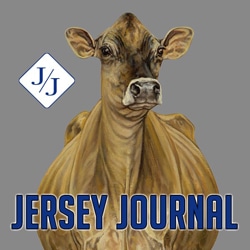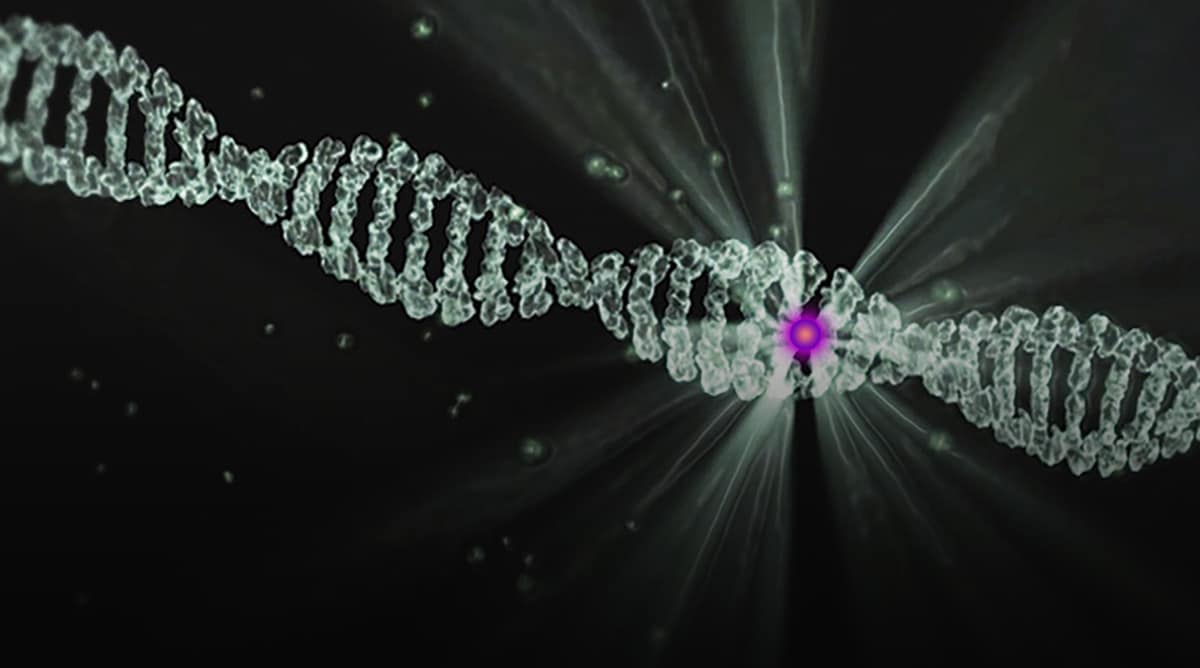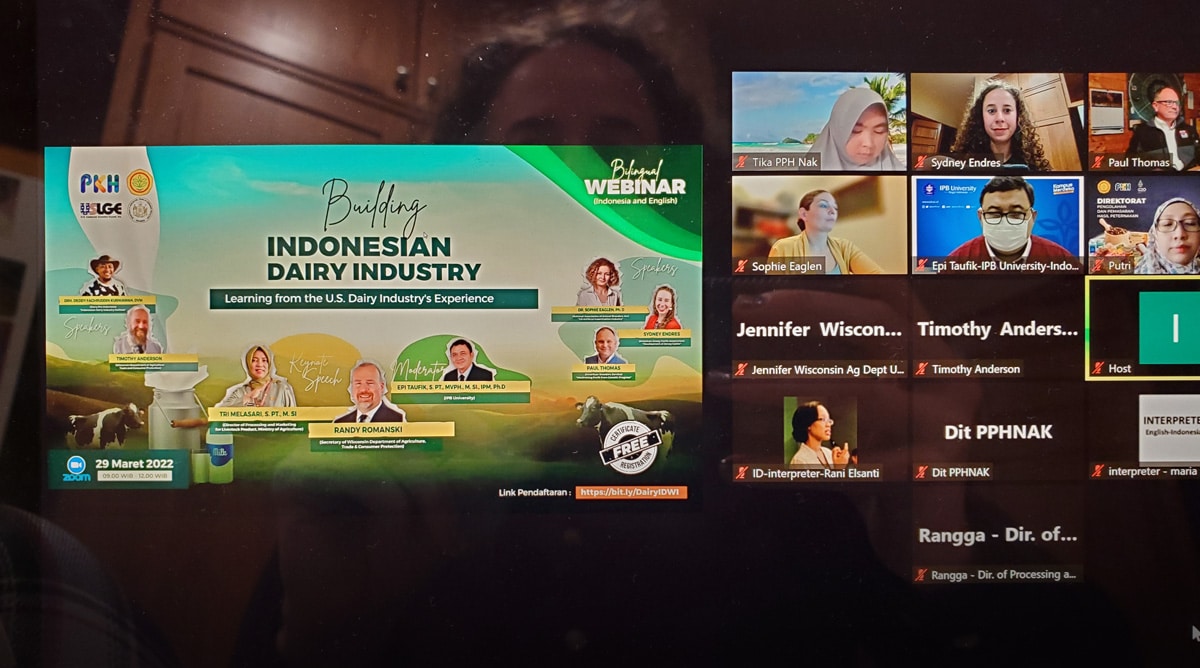AJCA Board Approves New Policy for Genome-Edited Jerseys
The concept of “genetic modification” has been practiced by dairy farmers for centuries through corrective, or selective, breeding. But with the sequencing of the bovine genome have sprouted opportunities to take this to a whole new level by altering DNA through gene editing.
Society has largely accepted traditional selective mating. However, widespread concern has been expressed for gene manipulations in the lab. Many countries have even banned the production or import of gene modified organisms (GMO) like soybeans and corn, our country’s two largest agricultural exports.
Currently, the U.S. regulates biotechnology for animals used for human consumption through the Food and Drug Administration (FDA). To date, the FDA has limited the intentional altering of DNA at the cellular level in animals. But that is sure to change as companies seek to capitalize on molecular technologies and the livestock community is asked to produce more food with fewer resources and do it more sustainably.
Genome-Edited Registered Jerseys
So, what does this have to do with Registered Jerseys since they are not currently being gene-edited? The dairy industry is ripe with opportunity for biotechnology applications thanks to a gold mine of data collected generation after generation and widespread use of genetic practices like A.I., genotyping, in-vitro fertilization, and embryo transfer.
In a proactive measure, the board of directors of the American Jersey Cattle Association (AJCA) approved policy for genome-edited animals at its meeting in March 2023.
The board defined a genome-edited Jersey as one that has undergone intentional gene alteration (IGA) by deleting or suppressing a portion of the genome or adding a DNA construct sourced from another animal. The registration name of a genome-edited animal will include the suffix GE. Registration names of descendants (all subsequent generations) of a genome-edited animal will include the suffix GED.
Jersey breeders who submit a registration application for an animal that is the result of IGA must provide documentation that validates what DNA construct was inserted, where it was inserted, and confirm that it is present and functional in the animal to be registered. Approval of the registration is the sole discretion of the AJCA board, which will consider how the introduction will impact the Jersey population.
Only animals with an IGA that has been reviewed and approved by the FDA are eligible for registration. A list of pre-approved genome edits will be made available to members. To the extent possible, parentage of all genome-edited animals must be confirmed.
To date, several other cattle associations have adopted policies for genome-edited animals as well, including the Holstein Association USA, the American Angus Association, and the American Hereford Association.
Where Did This Start?
The need for regulations regarding genetically engineered animals dates to the early 1980s, when recombinant DNA (rDNA) constructs were first used on mice, and then rabbits and pigs.
In 1986, the Reagan administration issued the Coordinated Framework for the Regulation of Biotechnology to ensure the safety of these emerging genetic manipulation techniques such as rDNA, recombinant RNA, and cell fusion. Three agencies were charged with their oversight. The United States Department of Agriculture (USDA) was given responsibility for genetically engineered crops, the Environmental Protection Agency for genetically engineered insecticides, and the FDA for genetically engineered animals. The FDA views gene editing as a drug, so companies are required to seek approval before introducing gene altered animals to the food supply chain.
Gene Editing in Cattle
Fast forward two decades to 2009, when the genome of Bos Taurus was sequenced. The Bovine Genome Database was established, haplotypes and SNPs evaluated, and early genotyping tests developed.
Among the first companies to gene-edit cattle was Recombinetics Inc., which used the transcription activator-like effector nuclease (TALENs) method to swap a horned allele with a polled allele in a Holstein bull cell. The cell was cloned and yielded a pair of naturally polled bulls named Spotigy and Buri. Spotigy was slaughtered for research. Buri sired about 17 polled offspring at facilities at the University of California-Davis and a farm in Australia.
The technique used by Recombinetics could not be used commercially, though, because the FDA discovered the genome sequence of Buri contained bacterial DNA that had been accidentally transferred in the process as well. The line was deemed to be a GMO rather than an IGA because the cells included DNA from another species, in this case, bacterial plasmid. The unwanted DNA sealed their fate.
But the polled pilot project did not deter Recombinetics. The Minnesota-based company changed protocol, adopted new gene editing methods, and continued their work with livestock genes through their agriculture division, Acceligen. In March 2022, they came to the FDA with a request that would change the future of genome-edited livestock.
The FDA made a landmark “low risk” enforcement discretion that allows meat from gene edited beef cattle developed by Acceligen to be marketed for human consumption. Researchers made a modification to the prolactin receptor (PRLR) gene in these cattle, known as PRLR-SLICK cattle, using the clustered regularly interspaced short palindromic repeat (CRISPR) method. These cattle with extremely short hair, aka slick coats, are less likely to experience heat stress in hot, humid weather.
The agency determined that the IGA of these animals does not raise any safety concerns (low risk) and results in a genotype that is like that found in conventionally bred cattle with slick coats. Data reviewed by the FDA suggests the IGA in these cattle is the equivalent to the naturally occurring mutations that have arisen in several breeds as an adaptation to being raised in tropical or subtropical environments.
To date, the FDA has made low-risk determinations for enforcement discretion for other IGAs in animals for non-food uses and approved applications for IGAs in goats, chickens, salmon, rabbits, and pigs. Many of the livestock applications are for non-food purposes. Cattle are just the third species given the FDA green light for the food chain, in addition to salmon in 2017 and pigs in 2020.
The decision allows Acceligen to bypass many of the usual premarket approval requirements. Meat from PRLR-SLICK cattle is expected to be available for consumer purchase as early as 2024 and would not be subject to mandatory labeling under the USDA National Bioengineered Food Disclosure Standard.
Down the Road
Though we cannot know the future or predict consumer acceptance of genetically modified dairy products and proteins, the FDA determination is certainly opening doors to other developments for the food supply chain.
The AJCA board adopted the policy on genome-edited Jerseys as a proactive measure to enable Jersey breeders to make decisions for their herds and manage them as new genetic technology becomes available.




